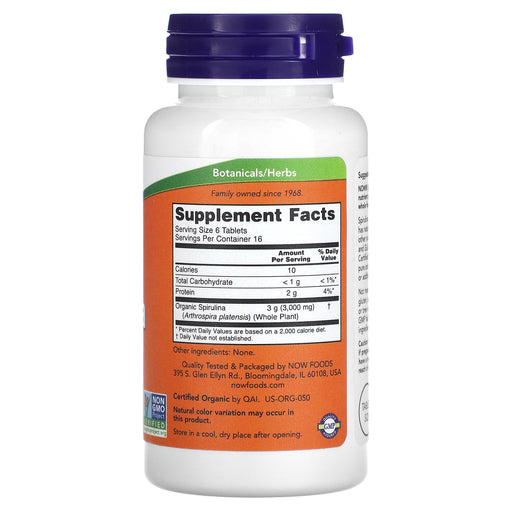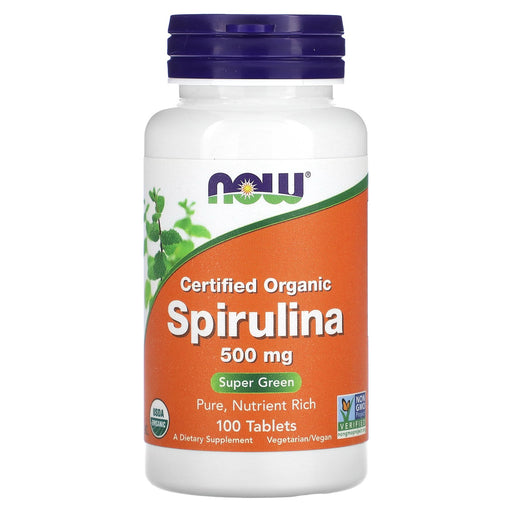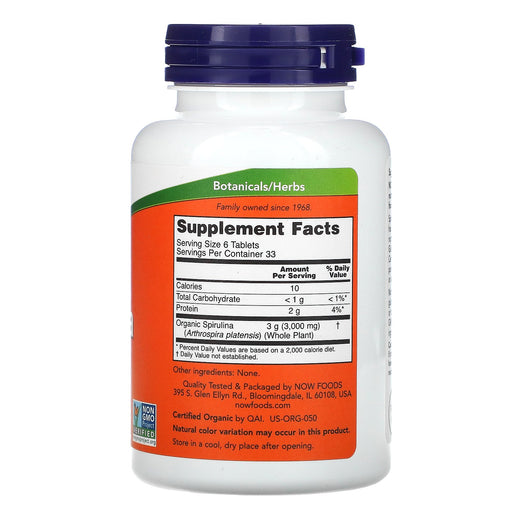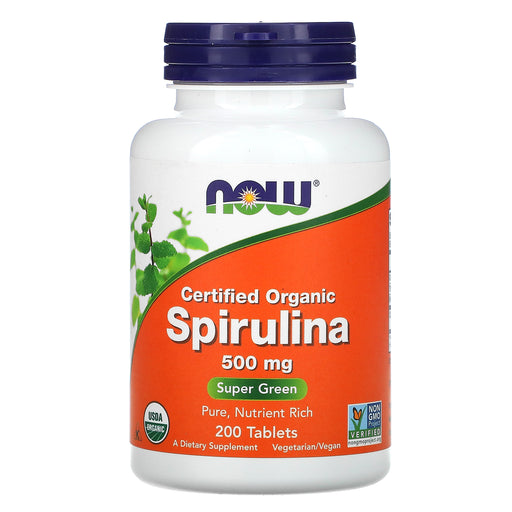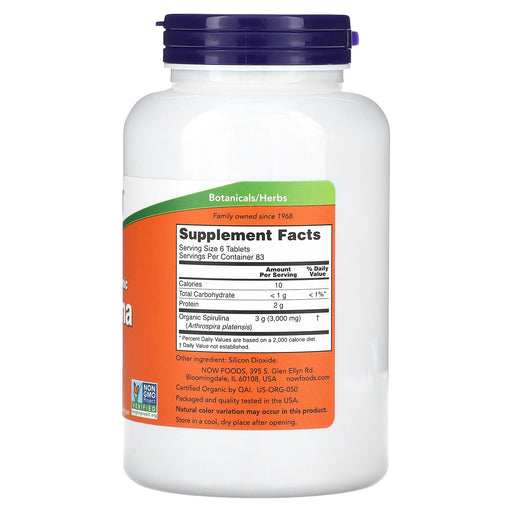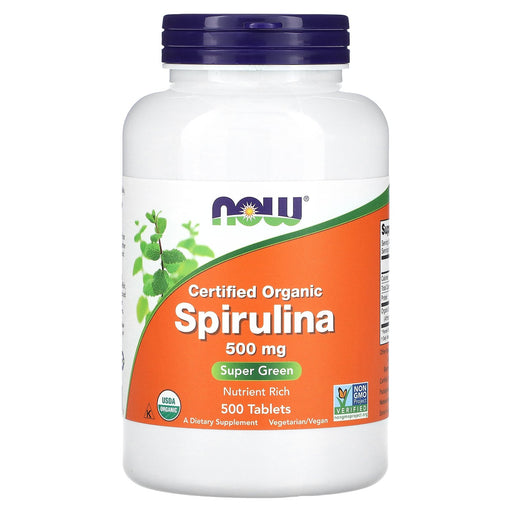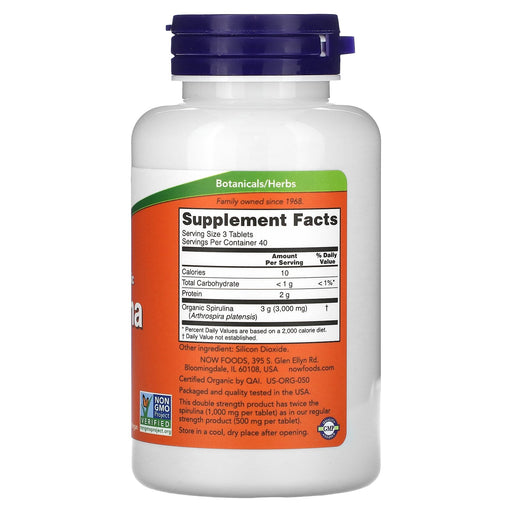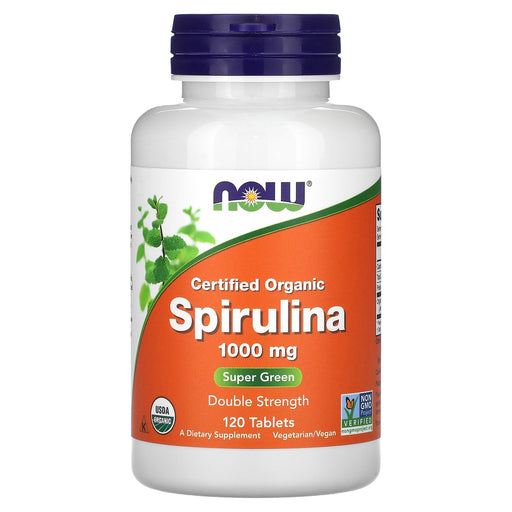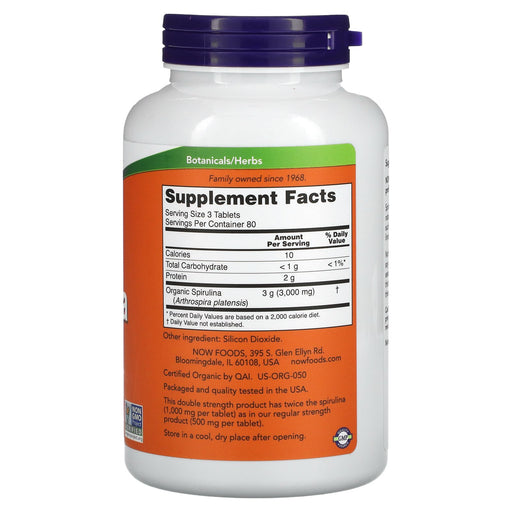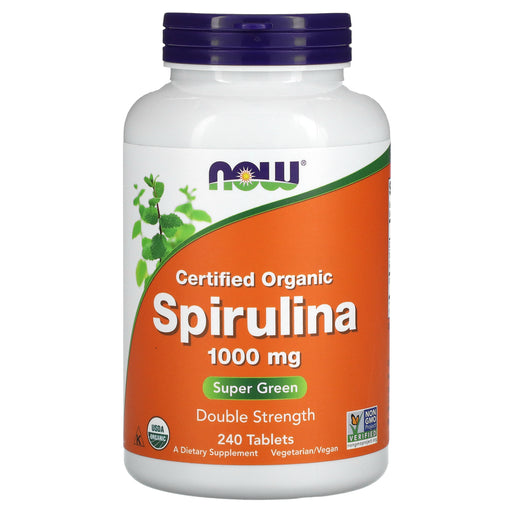
Unleash the Superfood Power of Spirulina for Optimal Health and Vitality
Spirulina, a type of blue-green algae, has been celebrated for centuries as a nutrient-dense superfood, packed with essential vitamins, minerals, antioxidants, and plant-based protein. By incorporating spirulina supplements into your wellness routine, you can tap into the extraordinary health benefits of this amazing algae, supporting detoxification, immune function, and overall well-being.
What is Spirulina?
Spirulina is a microscopic, spiral-shaped algae that thrives in warm, alkaline waters around the world. It is one of the oldest life forms on Earth, with a history of consumption dating back to the ancient Aztecs and Mayans.
Spirulina's impressive nutritional profile includes:
- Complete Plant-Based Protein: Spirulina is approximately 60% protein by weight, containing all nine essential amino acids, making it a valuable protein source for vegans and vegetarians.
- B Vitamins: Spirulina is rich in B vitamins, particularly vitamin B12, which is essential for red blood cell formation, neurological function, and DNA synthesis.
- Iron: Spirulina is an excellent plant-based source of iron, which is crucial for oxygen transport, energy production, and immune health.
- Antioxidants: Spirulina contains powerful antioxidants, such as phycocyanin and beta-carotene, which help protect cells from oxidative stress and inflammation.
- Essential Fatty Acids: Spirulina provides gamma-linolenic acid (GLA), an essential omega-6 fatty acid that supports brain health, hormone balance, and skin health.
Benefits of Spirulina Supplementation
Incorporating spirulina supplements into your health regimen may offer several potential benefits, including:
- Detoxification Support: Spirulina's high chlorophyll content and antioxidant properties help support the body's natural detoxification processes, promoting the elimination of toxins and heavy metals.
- Immune System Boost: The nutrients and antioxidants in spirulina, particularly phycocyanin and beta-carotene, help support immune function and protect cells from oxidative stress.
- Cardiovascular Health: Some studies suggest that spirulina may help support heart health by promoting healthy cholesterol levels, reducing inflammation, and improving endothelial function.
- Digestive Health: Spirulina's high protein and chlorophyll content may help support digestive health by promoting the growth of beneficial gut bacteria and aiding in the absorption of nutrients.
- Energy and Endurance: The B vitamins and iron in spirulina support energy production and oxygen transport, which may help improve physical performance and reduce fatigue.
Choosing the Best Spirulina Supplement
When selecting a spirulina supplement, consider the following factors to ensure you choose a high-quality product that meets your needs:
- Purity and Quality: Look for spirulina supplements that are sourced from clean, unpolluted waters and are free from contaminants like heavy metals, pesticides, and microcystins.
- Nutrient Density: Choose supplements that provide a concentrated source of spirulina's key nutrients, such as protein, B vitamins, iron, and antioxidants.
- Organic Certification: Opt for spirulina supplements that are certified organic to ensure the algae is grown without the use of synthetic fertilizers, pesticides, or genetically modified organisms (GMOs).
- Brand Reputation: Select supplements from trusted brands with a history of producing high-quality, pure, and potent spirulina products and a commitment to transparency and sustainability.
- Dosage and Form: Consider your individual needs and preferences when choosing a spirulina supplement, such as powder, tablets, or capsules, and follow the recommended dosage instructions on the product label.
Maximizing the Benefits of Spirulina Supplements
To get the most out of your spirulina supplement, consider the following tips:
- Pair with a Balanced Diet: While spirulina supplements can provide a concentrated source of nutrients, they should be used in conjunction with a balanced, whole-food diet rich in fruits, vegetables, whole grains, and lean proteins.
- Stay Hydrated: Drink plenty of water throughout the day to support optimal nutrient absorption, detoxification, and overall health.
- Combine with Other Superfoods: Consider pairing spirulina with other nutrient-dense superfoods, such as chlorella, wheatgrass, or moringa, for a synergistic boost of vitamins, minerals, and antioxidants.
- Listen to Your Body: Start with a lower dose of spirulina and gradually increase as tolerated, paying attention to your body's response and any potential side effects, such as digestive discomfort or allergic reactions.
- Consult Your Healthcare Provider: If you have pre-existing health conditions, are pregnant or nursing, or are taking medications, consult with your healthcare provider before starting a spirulina supplement regimen to ensure safety and appropriate use.
Harness the Extraordinary Power of Spirulina for Optimal Health and Well-Being
If you're looking to support detoxification, immune health, and overall vitality, spirulina supplements may be the key to unleashing your body's full potential. By providing a rich source of plant-based protein, essential vitamins and minerals, and potent antioxidants, spirulina offers a natural and sustainable way to nourish your body and promote optimal health.
Witness the transformative potential of spirulina for yourself by exploring our curated selection of high-quality spirulina supplements. With a commitment to purity, potency, and your individual needs, Health Orchard is here to support you on your journey to vibrant health and well-being, one superfood at a time.
Frequently Asked Questions about Spirulina
1. What is spirulina supplement good for?
Spirulina, a blue-green algae, is a nutrient-dense supplement that offers a wide range of potential health benefits:
- Rich in protein, vitamins (vitamin B12, vitamin A, vitamin K), minerals (iron, calcium, magnesium), and antioxidants
- May support immune system function and protect against oxidative stress
- May help lower LDL cholesterol and triglyceride levels, supporting heart health
- May have anti-inflammatory properties, which can benefit various health conditions
- May help improve blood sugar control and insulin sensitivity
Spirulina supplements are available in powder, tablet, or capsule form, making it easy to incorporate into a daily wellness routine.
2. Is it safe to take spirulina every day?
Consuming spirulina daily is generally considered safe for most people when taken in recommended doses. The typical daily dosage of spirulina ranges from 1-8 grams, depending on individual needs and health goals. Many studies have investigated the long-term use of spirulina and have found it to be well-tolerated without significant adverse effects.
3. Are there any side effects of spirulina?
While spirulina is generally well-tolerated and considered safe for most people, some individuals may experience side effects, particularly when consuming high doses or starting supplementation. Potential side effects of spirulina may include:
- Digestive discomfort
- Allergic reactions
- Headaches or dizziness
- Increased risk of bleeding
- Contamination risks
To minimize the risk of side effects, it is essential to choose high-quality spirulina from reputable sources, start with a lower dose, and gradually increase as tolerated.
4. Is spirulina good for the liver and kidneys?
Spirulina may offer potential benefits for liver and kidney health due to its nutrient profile and therapeutic properties:
Liver health:
- Rich in antioxidants (phycocyanin, beta-carotene, and other carotenoids) that help protect the liver from oxidative stress and damage
- May support the liver's detoxification processes and help remove toxins from the body
- May help reduce liver inflammation and improve liver function in certain conditions, such as non-alcoholic fatty liver disease
- Kidney health:
- May help protect the kidneys from oxidative stress and inflammation
However, it is essential to note that while spirulina may offer potential benefits for liver and kidney health, it should not be used as a substitute for medical treatment or without consulting a healthcare professional, particularly for individuals with pre-existing liver or kidney conditions.
5. Who cannot take spirulina?
While spirulina is generally considered safe for most people, some individuals should exercise caution or avoid taking spirulina supplements:
- People with allergies to seafood, seaweed, or other blue-green algae, as they may be at higher risk of allergic reactions to spirulina
- Individuals with autoimmune disorders (e.g., lupus, rheumatoid arthritis, multiple sclerosis), as spirulina may stimulate the immune system and potentially exacerbate symptoms
- People with bleeding disorders or taking blood-thinning medications, as spirulina may increase the risk of bleeding
- People with phenylketonuria (PKU), as spirulina is a rich source of the amino acid phenylalanine
6. Can spirulina lower creatinine?
Spirulina may have the potential to lower creatinine levels, which is a waste product produced by muscle metabolism and filtered out by the kidneys. Elevated creatinine levels can be an indicator of impaired kidney function. Some studies suggest that spirulina may help lower creatinine levels and improve kidney function through several mechanisms:
- Antioxidant properties: Spirulina is rich in antioxidants, such as phycocyanin and beta-carotene, which may help protect the kidneys from oxidative stress and damage
- Anti-inflammatory effects: Spirulina may help reduce inflammation in the kidneys, which can contribute to improved kidney function and lower creatinine levels
- Heavy metal detoxification: Spirulina may help remove heavy metals and toxins from the body, reducing the burden on the kidneys and potentially lowering creatinine levels
However, it is essential to note that while some studies suggest potential benefits, more research is needed to fully understand the effects of spirulina on creatinine levels and kidney function.
7. Which is better, spirulina or moringa?
Both spirulina and moringa are nutrient-dense superfoods with unique health benefits, making it difficult to say which one is definitively better. The choice between the two may depend on individual needs, preferences, and health goals. Here's a comparison of their key features:
Spirulina:
- Rich in protein, vitamins (vitamin B12, vitamin A, vitamin K), minerals (iron, calcium, magnesium), and antioxidants (phycocyanin, beta-carotene)
- May support immune function, cardiovascular health, and blood sugar control
- May have anti-inflammatory and detoxification properties
- Generally well-tolerated, with rare side effects such as digestive discomfort or allergic reactions
- Rich in vitamins (vitamin A, vitamin C, vitamin E), minerals (iron, calcium, potassium), and antioxidants (flavonoids, polyphenols)
- May support immune function, digestive health, and blood sugar control
- May have anti-inflammatory and antimicrobial properties


